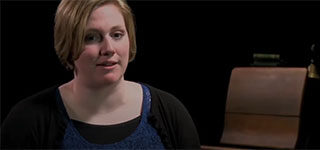Early Childhood Education/
English as a Second Language
Bachelor’s + Master’s Program (BS/MEd)
Credits
154
Completion Time
5 Years
Delivery Method
Undergrad Courses on campus at Lancaster, PA & online Master's Courses
Study Early Childhood Education (PreK-4)/English as a Second Language (Pre-K-12) at LBC | Capital
Through LBC’s 4+1 (BS/MEd) education program, you will earn two levels of degrees and be Pennsylvania state-certified to teach early childhood students as well as English learners, all in just five years.
Students in the early elementary grades experience so much learning and growth. Imagine teaching a child how to read or opening up a new language for a child. Your role as their teacher has lasting effects that imprints the rest of their lives. By earning an undergrad degree in early childhood education and a master’s degree in teaching ESL students, you will be equipped to reach these learners, knowing how to most effectively meet their needs. Teaching English as a second language is a rewarding career, and the need for ESL teachers in the United States is growing all the time.
Education classes on the LBC campus will provide you with educational theory, content knowledge, and practical skills. Furthermore, intentionally planned field placements in public and private schools will provide you with numerous opportunities to experience a wide variety of classrooms and settings. A capstone action research project will enable you to look at classroom practice through a critical lens. All along the way, you will be supported by knowledgeable, compassionate faculty ready to help and listen. The job market for graduates with skills in Early Childhood and ESL is strong as schools need qualified, caring teachers ready to impact the next generation of students.
In a 4+1 program, students work toward the completion of an undergraduate degree while also pursuing a Master’s degree. Graduate-level courses taken during undergraduate studies fulfill both undergraduate elective requirements and graduate program requirements. In the 4+1 program, students are dual-enrolled in LBC and Capital Seminary and Graduate School.
Course Length
16 weeks (semester) for undergraduate courses & 8 weeks (terms) for master’s courses with exceptions for Apprenticeship courses
Program Cost & Financial Aid
Admissions Process
Where LBC Students Have Interned or Student Taught
- Local public schools: Kreutz Creek Elementary School, Schaeffer Elementary School, Neff Elementary School, Wrightsville Elementary School
- Local Christian school: Manheim Christian Day School
License, Certification & Credential Information
Graduates from this major receive Pennsylvania Instructional I certification (PreK-4), an ESL Program Specialist certification (PreK-12 ) and Association of Christian Schools International (ACSI) Standard certification (K-8)
Can I Transfer Credits?
Yes! Read about LBC’s transfer policy
Early Childhood/English As Second Language Program Scope
BS/MEd (154 Credits)
LBC Foundation Studies Courses 4 Credits
Bible & Theology Core Courses 30 Credits
Arts & Sciences Core Courses 34 Credits
Major Courses 86 Credits
View the Academic Catalog for the complete curriculum plan, course descriptions and complete program details.
What makes the LBC Early Childhood Education/ ESL program unique?
- Earn two education degrees – an undergraduate and graduate degree – in just 5 (five) years.
- Receive a Pennsylvania Instructional I certification (PK-4), an ESL Program Specialist certification (PK-12), and an Association of Christian Schools International (ACSI) Standard certification (K-8) so that you have the option of teaching in public and Christian schools.
- Experience schools and classrooms from your first course all the way through to student teaching.
- Learn from caring educators who teach from a biblical worldview.
Programs leading to teacher certification are approved by Association of Christian Schools International (ACSI) and Pennsylvania Department of Education (PDE).
What are career paths with a Early Childhood/ESL degree?
This bachelor’s/master’s degree prepares students for various of educational contexts. Here is a sampling of careers and opportunities this degree affords:
- Elementary School Teacher
- ESL Teacher
- Substitute Teacher
- School Administrator
Early Childhood/ESL Program Goals – In this program, students will…
- Integrate knowledge to design coherent learning experiences.
- Implement safe, equitable, learning-focused environments.
- Demonstrate effective instructional practices.
- Demonstrate professionalism.
- Integrate a biblical worldview.
Core Courses for an Early Childhood/ESL Major
ELE 101 Introduction to Early Childhood Education
EDU 105 Instructional Technology
EDU 204 Instructional Design
ELE 205 Integrating Play, Movement, and the Arts
EDU 333 The Exceptional Child
ELE 201 Math Instruction for the Young Child
EDU 340 Introduction to Curriculum & Assessment
ELE 320 Literacy Instruction-Primary
EDU 335 Inclusionary Practices
ELE 321 Literacy Instruction-Intermediate
ELE 352 Social Studies in Elementary School
EDU 430 Classroom Management
ELE 354 Methods of Teaching Science
EDU 103 Professional Seminar I
EDU 461 Cross Cultural Experience
EDU 301 Internship I
EDU 302 Internship II
EDU 401 Internship III
EDU 402 Internship IV
ESL 500 Culture & Communication
ESL 515 Language and Literacy Development of ESL
EDU 519 Foundations and Frameworks for Learning
EDU 526 Diagnostic Reading Assessment
ESL 520 Instruction & Assessment for ESL
ESL 610 ESL Internship & Seminar
EDU 529 Collaborative Team Approach
EDU 570 Apprenticeship I
EDU 598 Seminar in Action Research
EDU 560 Teacher’s Life and Work
EDU 580 Apprenticeship II
EDU 599 Project in Action Research
EDU 550 Socio-Cultural Perspectives
ESL 517 Language Foundations for Teachers
Visit the undergraduate and graduate catalogs for the complete listing and descriptions.
